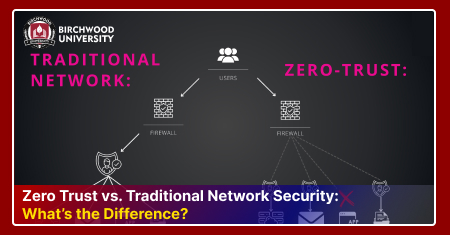Executive MBA: Course, Fees, Admission, Eligibility, Jobs
Dec 20, 2023Thinking about going for an Executive MBA (EMBA) to upskill your profession is the best choice one can make. It will not only help you get a better salary but will also expand your professional network. You will also develop better management and business administration skills.
Even though an Executive MBA (EMBA) study program will provide you with ample skills and career benefits in the future, it will also cost you a hefty amount of money from your pocket. So before considering going for an Executive MBA program, you should consider asking yourself some questions to analyse where you stand.
The first question that comes to mind is which executive program to choose. What are your interests and passions? Does the program match your career and professional goals, and so on? In this blog, we have prepared some questions and factors to consider before you enroll in an Executive MBA program.
Difference Between MBA and EMBA
The main trade-off between the two programme options, aside from the variations in full and part-time scheduling, is the less-intensive nature of obtaining an executive MBA. There is merit to the full-time immersion of a typical MBA programme, even while it doesn't mean EMBA applicants won't still learn a lot and network.
A typical MBA programme lasts two years. An MBA is essentially a general management degree, and it does not require professional work experience. Maintaining a career outside the programme can be challenging for full-time MBA students due to their rigorous, full-time schedules. MBAs can choose when to take classes and specialise in areas like finance, marketing, or entrepreneurship in addition to the traditional business basics.
An Executive Master of Corporate Administration, or EMBA, is a two-year program designed for executives in the corporate world who have managed teams for at least five years. Students are 38 years old on average. Business rock stars, on the other hand—prodigies, quick climbers, executives the company wants to keep around, and perhaps even a few real-life rock stars—might not need to put in as much effort. EMBA students usually attend classes on Fridays and weekends in addition to maintaining full-time employment.
Executive MBA Eligibility
There is a higher chance of career advancement for students who enroll in Executive MBA programmes compared to those who do not. Similar requirements apply to regular and executive MBAs. Work experience is the sole qualification need for the Executive MBA, and it is given significant weight during the selection process.
Let's take a look at the Executive MBA admission process criteria below:
- Any applicant who has graduated from an accredited university with a bachelor's degree with at least a 50% aggregate or equivalent. Many institutions do not have a minimum score requirement to be eligible for an Executive MBA.
- A minimum of two years of managing or executive job experience is required of the candidate. Part-time work experience is not accepted by any MBA programmes.
- For Executive MBA eligibility, the number of working years, or job experience, varies depending on the institute and ranges from two to five years. Prior to applying, the candidate should confirm that the chosen B-schools offer the Executive MBA.
Executive MBA job opportunities
An executive MBA programme, commonly abbreviated as EMBA, is intended for students who are currently employed in the corporate sector. Students can continue to work while gaining new skills and knowledge from the course. By integrating their coursework with their regular professional lives, students enrolled in Executive MBA programmes in India can hone their talents and abilities. Let's take a look at Executive MBA job Opportunities.
Brand Manager
Being a brand manager is an excellent job choice for individuals seeking an EMBA in marketing. Creating unique marketing techniques and assessing consumer data are two ways that a brand manager keeps a company's reputation intact. Trends in marketing must be observed and followed by a brand manager. The role of a brand manager also includes developing and conveying the vision and objective of the organisation. Together with having sharp analytical thinking and excellent communication skills, a competent brand manager can preserve client relationships. As a brand manager, being able to think creatively is incredibly beneficial.
Entrepreneurship Career Opportunities
Aspirants to the EMBA programme learn discipline and how to view the world more logically. Students that adopt this mindset are more adept at becoming entrepreneurs. With the help of an executive MBA, students can calculate all the risks involved in creating a successful venture plan. Along with gaining essential competences in marketing, accounting, and licencing, among other areas, students also get to learn leadership, networking, and appropriate business ethics. The candidates learn to research the opportunities and risks in the market and become more creative. The EMBA programme creates a professional path that allows students to work for themselves.
Financial Manager
An aspirant has a wide range of job alternatives in the huge subject of finance. A strong interest in analysis and management is necessary to pursue a career in finance. Following an Executive MBA, students can advance their careers by seeking to work in the business, government, banking, or investment sectors. Students can obtain excellent jobs for positions like this based on their qualifications.
- Financial Manager/Analyst
- Credit Analyst
- Accounting Manager
- Risk and Insurance Manager
- Treasurer
- Finance Manager
Sales head
Teaching Executive MBA students about brand marketing, sales, various marketing methods, executive and leadership management talents, product management, market research, and consumer behaviour is the primary goal of top B schools in Kolkata and other states. Students can readily get employment for the following profiles after completing their EMBA:
- Sales Head
- Brand Manager
- Product Manager
- Internet Marketing Manager
Executive MBA Fees
In Europe, the cost of an executive MBA varies from institution to college and can be anywhere from 40,000 to 125,000 euros. The price of an MBA programme in Europe can range from 10,000 to 50,000 Euros or more per year, depending on the nation and the university. This price covers living expenses, housing, tuition, and other associated expenditures.
Advantages of EMBA
Better Career options
Professional growth is one of the main advantages of earning an MBA. Some businesses demand accreditation for their management-level staff. People without an MBA degree can encounter a "glass ceiling" that makes it difficult for them to advance into higher-level roles. According to studies, MBA graduates have a higher chance than other employees in Fortune 500 businesses of achieving top management roles in those corporations.
Establish a professional connection
The connections you make while enrolled in an MBA school are among its most underappreciated benefits. During your MBA program, you will meet a lot of ambitious, career-focused people. The connections made in an MBA program are very challenging to reproduce outside of the teamwork and intense setting. There are countless advantages to being able to contact these people in the future.
Possibility of switching professions
A lot of people pursue an MBA because they want to change careers. Particularly many MBA graduates opt to work in the consulting or financial sectors after graduation. Opportunities in these fields may not ordinarily be accessible to students with diverse educational or professional backgrounds, but having an EMBA opens them up.
Provides one a competitive advantage
Anyone with an MBA has an immediate advantage over those without it in the job market. Having an MBA will help you stand out from the crowd while looking for jobs. Employers understand that holders of an MBA are disciplined and ambitious because of the effort required to obtain the degree. Due to these factors, finding employment is rarely a challenge for MBA graduates.
Strong management skills
Many applicants for MBA programs do so because they want to move into management but believe they lack the necessary abilities to do so. You will develop the ability to deal with actual issues managing other employees in an MBA program. Few other academic programs foster these management skills in the same manner.
Factors to consider while evaluating EMBA programs
Start with advanced research
It's always good to perform well-advanced research way before the application submission deadline. In that way, you will have a good amount of time to evaluate and research for other different programs.
Contact with Alumni and current students
Reach out to the alumni and current students of the particular program, to get a real and trusted perspective on the program's pros and cons.
Attend the webinars sessions
Attend all the sessions and webinars conducted by the program to learn more about the curriculum, admission process, and other important factors.
Check Ranking and reviews
Take a detailed look at the ranking and reviews of all the prospective colleges you are considering and are on your list.
How to manage Work and Studies together
Stay organised
Prepare a planner or use any online tool to do the same, so that you can keep track of important deadlines, assignments, and other tasks in hand.
Make a schedule
Develop a weekly schedule that consists of dedicated time for studies and other academic responsibilities, as well as your work and family commitments without any problem.
Develop a support network
Connect with your peers in your program and seek out mentorship opportunities to get guidance and support from experienced professionals in your Executive MBA program.






